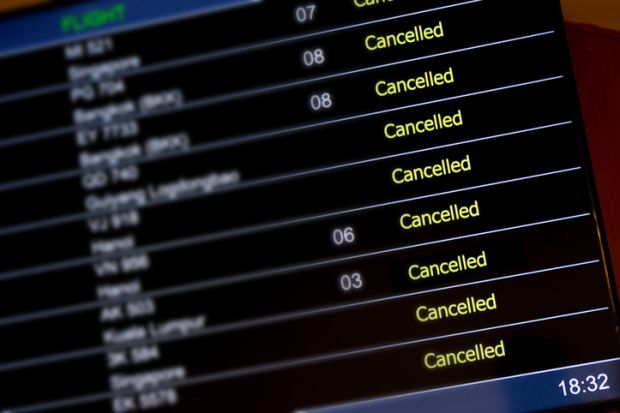The latest intervention in Australia’s international education settings has produced both relief and resentment, after the government postponed changes to universities and colleges’ immigration risk ratings.
Home affairs minister Tony Burke has decided to “pause” an update to the ratings pending the replacement of “ministerial direction 107”.
In a notice posted on its Provider Registration and International Student Management System website, the Department of Education said the update would “align” with the passage of legislation to introduce international enrolment caps – the government’s precondition for replacing ministerial direction 107.
If parliament rejects the legislation, Mr Burke will reconsider the risk ratings, which determine how much evidence visa applicants must provide and – crucially – the order in which visa applications are processed.
The ratings are normally updated around March and September. The most recent change, in early April, proved disastrous for the sector, with 11 universities downgraded.
This left most institutions in the visa processing slow lane, exacerbating delays and rejections that have cost the sector 60,000 international enrolments and put 14,000 jobs at risk, according to Universities Australia.
Mr Burke’s decision could bring relief to universities that feared for their own risk ratings. The vice-chancellor of the high-ranked University of Technology Sydney, Andrew Parfitt, told a recent Senate committee hearing that his institution faced the likely loss of its low-risk assessment “because of the visa rejections going up”.
However, some universities are aggrieved at the last-minute postponement after having dialled down their overseas student recruitment, either to preserve a good rating or to improve a poor one, only to find themselves disadvantaged against competitors that recruited less conservatively.
Phil Honeywood, chief executive of the International Education Association of Australia, said there had been “very little consultation” about the postponement.
He said the government was keen to align visa processing with the imposition of the caps in January. The “danger” was that institutions stranded with unfavourable risk ratings would not be able “meet their caps” because of the ongoing processing delays and the reassignment of staff from the student visa caseload.
“We need an assurance that there’ll be sufficient resourcing for student visa processing,” Mr Honeywood said.
The risk ratings are calculated using metrics over which universities and colleges have limited or no control, including the proportion of unsuccessful visa applications. Visa rejections have skyrocketed over the past year, with educators complaining that many of the refusals make no sense.
Rates of visa non-compliance also influence the risk ratings. Compliance issues also skyrocketed after the government removed limits on foreign students’ working hours, in a pandemic measure roundly criticised by educators.
While few institutions have achieved recent improvements in their risk ratings, the University of South Australia (UniSA) has proven an exception. It was among the 11 institutions downgraded in April, but its low-risk rating has since been reinstated.
UniSA also received a relatively favourable international student cap, thanks to an Education Department “adjustment” for “universities undergoing a merger process”, according to the department’s letters explaining its methodology.
A spokeswoman for UniSA, which will form part of the new Adelaide University, said the allocation of caps had included “special provisions for institutions undergoing amalgamation”.
Register to continue
Why register?
- Registration is free and only takes a moment
- Once registered, you can read 3 articles a month
- Sign up for our newsletter
Subscribe
Or subscribe for unlimited access to:
- Unlimited access to news, views, insights & reviews
- Digital editions
- Digital access to THE’s university and college rankings analysis
Already registered or a current subscriber?








